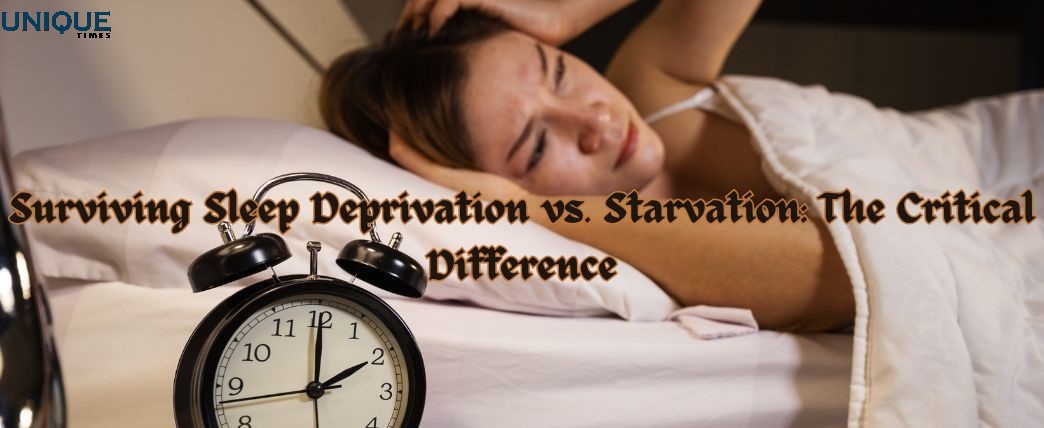Sleep Deprivation vs. Starvation: Unveiling the Critical Role of Rest

Sleep and sustenance—two fundamental aspects of human existence. While we often hear about the consequences of starvation and the importance of nourishing our bodies, the impact of sleep deprivation is less discussed. Surprisingly, a person can succumb to the effects of total sleep deprivation much faster than they would from starvation. Let’s delve into the intriguing world of sleep and its critical role in our survival.
The Silent Consequence: Sleep Deprivation
Sleep is not merely a luxury; it’s a biological necessity. When we sleep, our bodies undergo essential processes, such as tissue repair, memory consolidation, and the regulation of various bodily functions. Without sufficient sleep, these processes are disrupted, leading to a cascade of adverse effects on our physical and mental well-being.
The Deadly Countdown
Remarkably, the human body can endure weeks without food. In cases of extreme starvation, it can take several weeks for vital organs to deteriorate to the point of failure. However, the same cannot be said for sleep deprivation.
The 10-Day Threshold
Research suggests that a person can survive for about 10 days without sleep. Beyond this critical threshold, the consequences become increasingly dire. The exact timeline may vary from individual to individual, but the risks associated with extended sleep deprivation are severe.
The Toll on the Body and Mind
As the days without sleep accumulate, the body and mind undergo a harrowing transformation. Cognitive function deteriorates, leading to hallucinations, memory lapses, and impaired decision-making. The immune system weakens, making the body susceptible to illness. Eventually, the cumulative effects on vital organs can lead to irreversible damage and, ultimately, death.
The Importance of Rest
While the 10-day limit without sleep is a sobering reminder of the significance of rest, it’s crucial to emphasize the importance of regular, healthy sleep patterns. Chronic sleep deprivation, even if it doesn’t lead to immediate mortality, can have severe long-term consequences on physical and mental health.
Conclusion
In the battle between sleep deprivation and starvation, the former emerges as the more immediate threat to human survival. This revelation underscores the vital role that sleep plays in our lives, not just as a source of rejuvenation and vitality but as a fundamental requirement for our very existence. As we navigate the demands of our modern world, let’s remember to prioritize and cherish the restorative power of a good night’s sleep, knowing that it’s not just a luxury but a critical component of a healthy and resilient life.
Picture Courtesy: Google/images are subject to copyright








